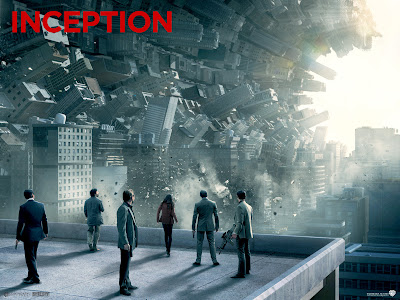"... Which simplicity could change into complexity,.." (page 12)
This quote speaks the truth in every form possible. Life is complicated but it starts off simple. Take one person's life for example. When you're a child your only worries are what color crayons you're going to use for coloring a fish. Then the person grows up and life gets complicated! Everyone feels the need to judge you, relationships come into play, you need to focus on your future, etc. Other than that touching truthful quote, I feel like I'm reading a biology book! The only difference is that Richard Dawkins puts his opinion into the already known fact.
"Their modern descendants, the DNA molecules, are astonishingly faithful compared with the most high-fidelity human copying process, but even they occasionally make mistakes, and it is ultimately these mistakes that make evolution possible." (page 17)
When I read this quote, I think of Ms. Gregory and how she always says, "Biology textbooks are a waste of time! You guys need to know what is actually happening in the world of science!" Although I find the quote completely useless, a couple of questions did come to me like:

- What does this have to do with humans being selfish? I mean the book is called The Selfish Gene correct?
- Did human's history, interms of evolution, make us all selfish?
A quote I found on page 18 gives a little explanation to these two questions. It states: "Evolution is something that happens, willy-nilly, in spite of all the efforts of the replicators (and nowadays of the genes) to prevent it from happening." You know that awkward moment when your parents or siblings tell you that you're an accident? Well that's exactly how I am feeling right now. The only difference is that I am definitely not alone. Hey guess what guys! No hard feelings for anyone! We are all accidents! Did our ancestors discover this long before us? Does this explain why we are so selfish? I mean it's understandable that they would all be in a crappy mood about this. I guess we are closer to monkeys then what we thought. "Monkey see, monkey do." That's exactly how we act. Our ancestors were selfish and apparently so are we. Another thing Dawkins says that somewhat answers my questions is:
"The next important link in the argument, one that Darwin himself laid stress on (although he was talking about animals and plants, not molecules) is
competition." (page 18)
This is when contradiction takes place in this book. A couple pages before Dawkins clearly stated:
"Darwin's 'survival of the fittest' is really a special case of a more general law of
survival of the stable. The universe is populated by stable things." (page 12)

After this he says that stable atoms come together to form something worthy of a name. He also implies that the universe prefers stable things like rocks, grass, and even water. I guess he never saw Disney's
Pocahontas. In her famous song,
Just Around the River Bend, Pocahontas says, "My father wants me to be steady, like the river. But it's not steady at all!" Water isn't stable or steady. It is constantly moving or flowing. In my opinion, the universe enjoys a variety. Any who, after saying that the universe prefers stable things, BAM! He decides to change opinion and say that we must all compete against each other. He says that we are "survival machines" (page 19). I guess this is where Survival of the Fittest comes back into play. He says:
"Survival machines got bigger and more elaborate, and the process was cumulative and progressive."

Does this mean that human evolution is a good thing? Is being a survival machine ok? I don't really understand what side the author is on. He is either saying that we are selfish organisms or progressive ones. He also refers to us as "robots" on page 19. I feel like he is trying to say that we compete against one another inorder to survive the one life we all get. So basically we live on the terms of YOLO (you only live once). We are all just selfish competitors that want to live the longest. As soon as I realized this, I immediately though of my favorite TV show
Make It or Break It. All the girls compete and put down one another to win, even though they are best friends. This crucial reality is also very similar to the plot of
The Hunger Games. I think it's just sad that he says that all human beings are like that. According to science, being selfish and cruel is just the reality of life.
 That passage supported even more my idea of thin cities representing anorexia. The women were obsessed with themselves. Isn't that the main reason why anorexia exists? I was so excited that I had understood this type of city until BAM! The rest of the page completely threw me off.
That passage supported even more my idea of thin cities representing anorexia. The women were obsessed with themselves. Isn't that the main reason why anorexia exists? I was so excited that I had understood this type of city until BAM! The rest of the page completely threw me off. 















